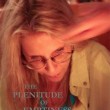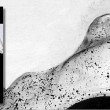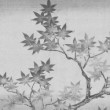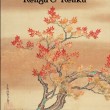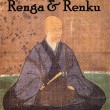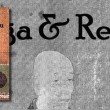Welcome to Darlington Richards
Publishers of renga, renku, haibun and other fine work, but mostly renku.Site Navigation
Search Results
Sorry, we couldn't find any results based on your search query.
Blog Archive
-
The Plenitude of Emptiness by Hortensia Anderson
The first (and very well-received) title from Darlington Richards, available through Lulu.com -
JRR3 update
Volume 3 of Journal of Renga & Renku is currently at an advanced stage of preparation. During the course of NH summer/SH winter we experienced unforeseen but unavoidable delays, and we offer our apologies for keeping our authors and readers waiting. We will let you know as soon as Volume 3 becomes available. We can […] -
JRR3 – Contributors List
Toyoko Aisawa: I live in Tokyo and teach Japanese Language and Japanese Culture to the foreign students at UNU-ISP and UNU-IAS, travelling to Shibuya and Yokohama once a week to meet with my students. I first composed kasen in the 1970s with Professor Suzuki Yukio of Waseda University, and Father Peter Milward of Sophia […] -
Protected: Purchase LBoY (team only)
There is no excerpt because this is a protected post. -
the Little Book of Yotsumonos
Darlington Richards are pleased to announce the launch of the Little Book of Yotsumonos. John Carley’s recently-designed four-verse renku format is represented by 60 poems, wherein Carley collaborates with such well-known haikai poets as Hortensia Anderson, Lorin Ford, Carole MacRury, Sandra Simpson, William Sorlien and Sheila Windsor, together with an introduction to the form. “I […] -
2012 Renku Contest
Prior to our call for content for Journal of Renga & Renku, Issue 3, we are delighted to announce this year’s renku contest which will be judged by Dr Chris Drake, long-time professor of Japanese literature at Atomi University in Japan. Details below: Entry fee: None Deadline: 1 October 2012 Prizes 1. The winning poem […] -
Journal of Renga & Renku 2: list of contributors
Hortensia Anderson considers renku an instrument of transformation as well as intimacy. She lives in the East Village in NYC with her bengal leopard cat, Camellia. Jeffrey Angles is an associate professor of Japanese and translation at Western Michigan University. Much of his research on Japanese literature focuses on expressions of erotic desire of modern […] -
Payment Cancelled
Payment cancelled. To return to the Journal of Renga & Renku purchase page, click here. -
Thank you
Thank you for your purchase. We use Print on Demand (POD) technology, so the manufacturing process precedes shipping. Based on your order, the expected manufacturing time is 3–5 business days. We will notify you again by e-mail once your order has shipped. -
Journal of Renga & Renku 1: list of contributors
Keith Kumasen Abbott: My Zen Teacher loved a big triangular rock I found lying on its side buried in a dry creek in New Mexico, just its speckled salt and pepper ridge showing. He was very excited and said that in Japanese this type was called a “lying-down upright rock.” So this stone stands straight […] -
Journal of Renga & Renku
This exciting new journal is devoted to all aspects of renga and renku. It is published and edited by Norman Darlington and Moira Richards, and launched at the end of 2010. It includes scholarly articles, poems, discussions, contests, critiques and more. Journal of Renga & Renku includes a variety of content that will interest Asian Studies scholars as well as teachers and students of English literature/poetry; we believe it will also be of interest to poets experimenting with the writing of renku in a number of languages around the world today, and to practitioners exploring aspects of renku and its za as an educational/social/therapeutic tool.
